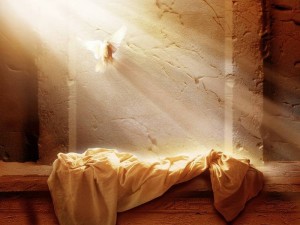
Last week I started reading God on Mute: Engaging the Silence of Unanswered Prayer, by Pete Greig. I didn’t realize it was going to be timely reading, because he uses the Easter timeline as the structure for his chapters. Did you ever stop to wonder what happened on that silent Saturday between Good Friday and Easter Sunday? What were the disciples thinking? What did they do? Did they pray, or were they too shell-shocked to even think? It must have seemed like all hope was lost. Greig writes:
“No one really talks about Holy Saturday yet if we stop and think about it, it’s where most of us live our lives. Holy Saturday is the no-man’s land between questions and answers, prayers and miracles. It’s where we wait—with a peculiar mixture of faith and despair—whenever God is silent or life doesn’t make sense.”
Sometimes it can feel like we are still stuck in that silent Saturday. God isn’t answering our prayers as we’d like, and we wonder if He really does hear or care. The challenge for us is how to hold onto hope and endure with patience until the day when every question is either answered or no longer relevant.
“The Bible leaves us in no doubt at all that when God is silent, He is not absent from His people—even if that’s the way it feels. He is with us now as much as He ever was. He’s no less involved in our lives than He was when we could hear His voice so clearly and could sense the joy of His smile…
“Why can’t we wait with the mess and pain of Holy Saturday unresolved? …In our fear of unknowing, we leapfrog Holy Saturday and rush the resurrection. We race disconcerted to make meaning and find beauty where there simply is none. Yet.”
We try to comprehend things that don’t make sense because we simply don’t have all the facts. God has not given us all the details or explained His master plan for our lives. We don’t want to wait patiently. In Christ’s resurrection is our reason for hope. Because He was raised, we can trust the promises of Scripture that God hears and answers prayer in His perfect way and time.
In his book Between Cross and Resurrection: A Theology of Holy Saturday, Alan. E. Lewis writes:
“But such is the world we live in, no different now from the first Easter Saturday, the day of divine abandonment and absence. Yet is not all prayer designed for Easter Saturday, the product of confusion, emptiness, and grief? Prayer is desperation translated into daring — the risk of letting go of confidence, eloquence, and that ‘spirituality,’ so fashionable now but so seductive. To pray is to confess not the abundance but the exhaustion of one’s verbal, intellectual, and spiritual resources. It is surrender to one who prays for us when we have no prayers left… Prayer then, the sound of silence upon Easter Saturday and every day which reenacts it, is the last breath of our self-relinquishment, the freedom we give God at last to be God, gracious, holy, and creative” (464).
May we not rush ahead in the church calendar, but dwell in the truths of Easter: Jesus is alive; God is still sovereign; He knows our weakness and hears our prayers; we can trust Him to do what He deems best even if it doesn’t always make sense to us.
“Likewise the Spirit helps us in our weakness. For we do not know what to pray for as we ought, but the Spirit Himself intercedes for us with groanings too deep for words. And He who searches hearts knows what is the mind of the Spirit, because the Spirit intercedes for the saints according to the will of God” (Romans 8:26-27 ESV).
© 2019 Dawn Rutan. Image copyright free from pixabay.com. The opinions stated do not necessarily reflect the views of my church or employer.





